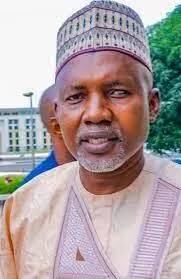The Federal Ministry of Education on Friday clarified that the Federal Government did not bar under-18-year-old students from writing the West Africa Senior School Certificate Examination (WASCE) and the National Examinations Council (NECO) Examination.
The Minister of State for Education, Dr Yusuf Tanko Sununu, made the clarification in Abuja on Friday while responding to journalists’ questions at the 2024 International Literacy Day with the theme “Promoting Multilingual Education: Literacy for Mutual Understanding and Peace” in Abuja.
He described the public misconception and misinterpretation of the remarks by the Minister of Education, Prof. Tahir Mamman, as disappointing.
According to him, the minister’s earlier comments had nothing to do with WASCE and NECO examinations but on the 18 years entry age requirement into tertiary institutions as was practised in the 6:3:3:4 system of education.
Sununu clarified: “We have agreed that we are going to consider it as a work-in-progress. The National Assembly is working and we are also working.
“It was shocking to say that a university in this country gave admission to children at ages 10, 11 and 12 years. This is totally wrong. We are not saying that there are no exceptions, we know we can have talented students that have the IQ of an adult even at age 6 and 7, but these are very few.
“There must be a rule, and the ministry is looking at developing a guideline on how to identify a talented child so that parents don’t say we are blocking their children’s chances.
“Nobody said no child will write WAEC, NECO or any other examination unless at age 18. This is a misconception and misrepresentation of what we have said”, the minister added.
In his remarks on the 2024 International Literacy Day, the minister harped on the critical role of literacy in fostering mutual understanding, peace and socio-economic development globally and reaffirmed the government’s commitment to addressing literacy challenges through the Education for Renewed Hope Roadmap (2024-2027).
While pointing out that youth and adult literacy remains among the key components of the roadmap, Sununu also spoke on the importance of using learners’ mother tongues as a medium of instruction, adding that focus should be on the role of a learner’s first language in becoming literate, which will foster mutual understanding and peace.
This is even as he canvassed the need for well-trained and knowledgeable educators to teach in local languages and development of follow-up reading materials in them for improved performance and relevance of the educational system for national development.






